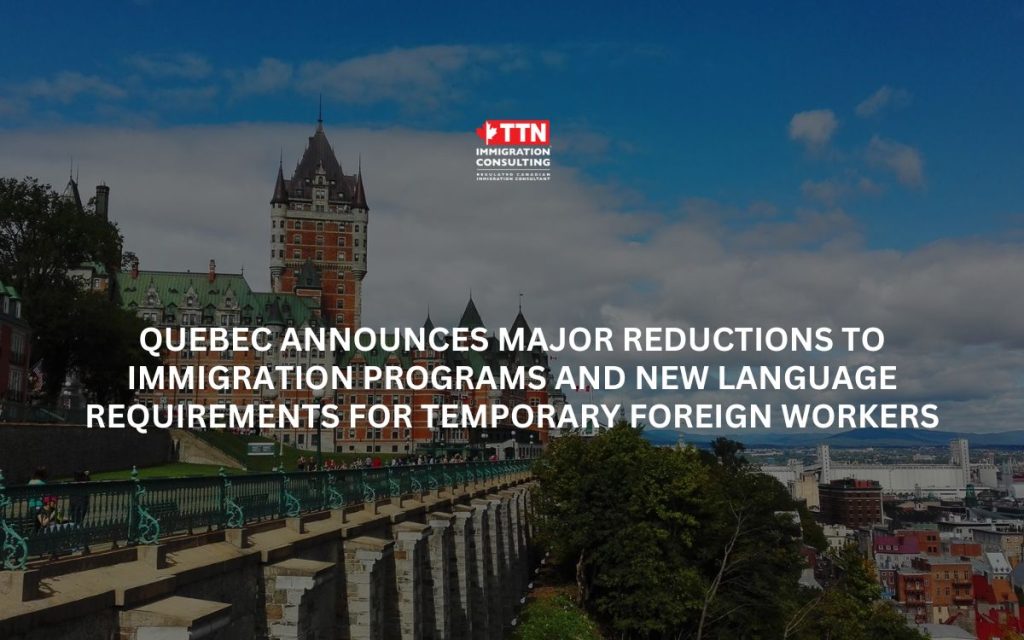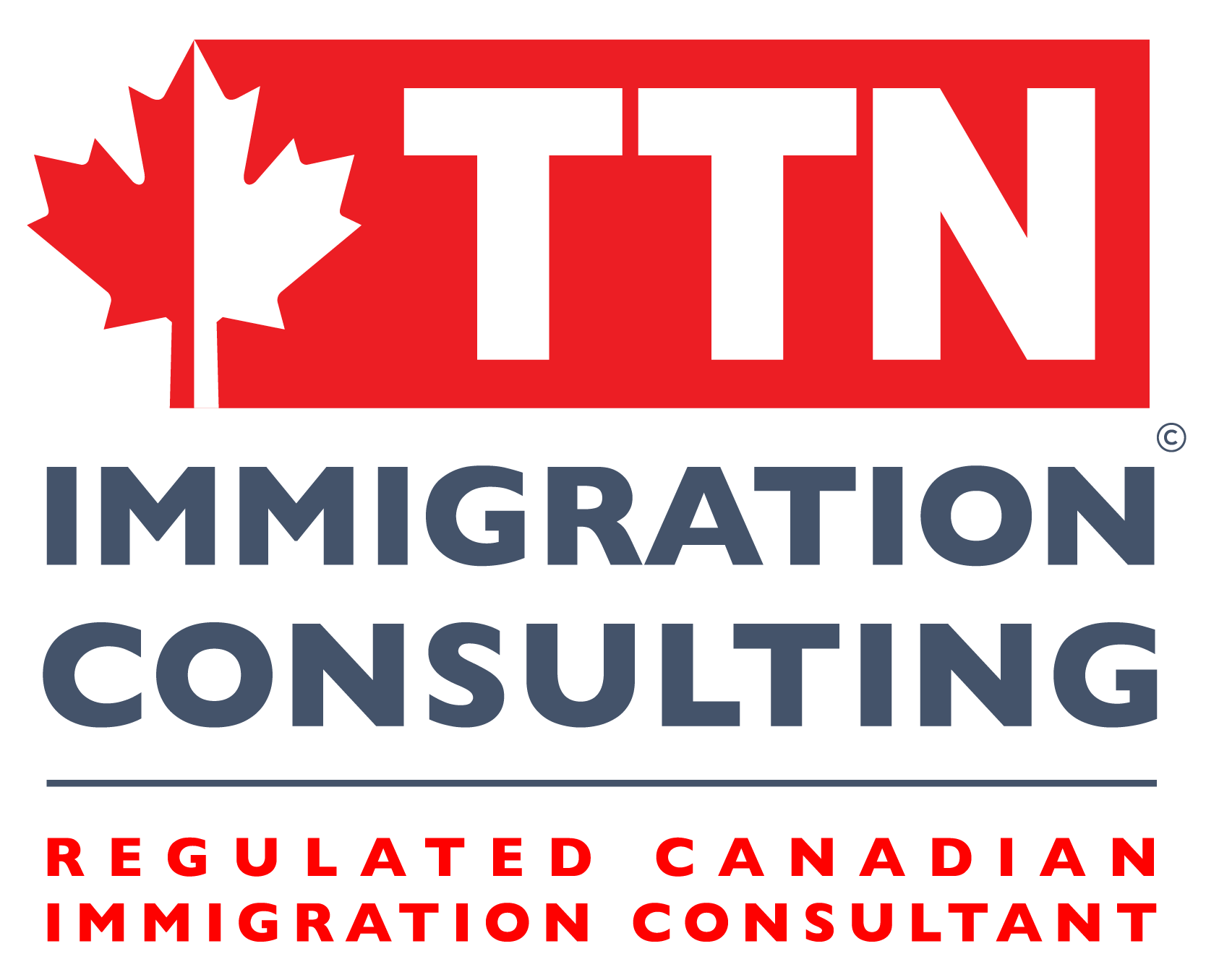Quebec Announces Major Reductions To Immigration Programs And New Language Requirements For Temporary Foreign Workers
During the 2025-2026 period, the province of Quebec will simultaneously implement a series of major changes in both skilled immigration, temporary study-work and pilot programs. These are Quebec's strongest adjustments in recent years with the goal of reducing the number of temporary residents, protecting the French language and controlling housing and population pressure.
The article below helps you understand the changes quickly and fully.

1. Quebec reduces permanent resident (PR) quota from 2026
Theo Kế hoạch Nhập cư 2026, Quebec sẽ chỉ tiếp nhận 45.000 thường trú nhân, thấp hơn đáng kể so với mức 2025.
Compare PR indicators:
| Year | Minimum level | Maximum level |
| 2026 | 43.000 | 47.000 |
| 2025 | 48.500 | 51.500 |
Expected structure:
- Economy: 27,500–30,100
- Family reunification: 9,600–10,400
- Refugee – humanitarian: 5,500–6,000
- Other: 400–500
Remarkable:
- 64% of PR is economic, mainly skilled workers.
- 54% of those granted PR will be temporary residents already living in Quebec.
- The goal is for 76% of immigrants to speak French.
2. Quebec sets quotas for international students and foreign workers for the first time
Quebec aims to gradually reduce its temporary resident population and has announced very detailed targets for 2026.
Target 2026
| Group | Minimum | Max |
| Lao động nước ngoài (TFWP/IMP) | 40.400 | 55.700 |
| International students | 44.500 | 68.500 |
Including
- 48% of foreign workers are agricultural workers.
- Quebec will issue 43,400–63,700 CAQs for workers and 87,300–114,100 CAQs for students.
Terminology: CAQ (Certificat d’acceptation du Quebec)
Document required by Quebec before applying for a Study Permit or Work Permit with IRCC.
Target by 2029
- Reduce temporary resident population to 65,000 workers and 110,000 international students.
3. Tighten French language requirements for foreign workers (effective from December 17, 2025)
Starting December 17, 2025, TFWP workers who have worked in Quebec for three years or more will be required to demonstrate:
- Speak French at NCLC 4 (basic level, simple communication).
Who is exempt?
- Agricultural workers
- Employees of international organizations (INGOs) recognized by Quebec
- Staff of foreign diplomatic offices
Transitional measures
- Workers in Quebec are given a 3-year extension (until December 17, 2028) to meet the French language requirement.
- During that time, they can still renew their CAQ without having to prove their French.
4. Closing most popular immigration pathways: PEQ, pilot programs
Quebec officially announced the closure of its long-term settlement programs, greatly affecting international workers and students.
4.1. Closure of the Québec Experience Program (PEQ) – November 19, 2025
PEQ is the most popular immigration pathway for:
- Quebec International Graduates
- Temporary workers working in Quebec
Two streams terminated:
- PEQ – Graduate Stream
- PEQ – Luồng lao động tạm trú
Applications submitted before the closing date will still be processed.
4.2. Termination of 3 PR pilot programs – from January 1, 2026
- Food processing industry workers
- Care staff (Orderlies)
- AI – IT – VFX Group
Only Francophone profiles for the AI industry are accepted until December 31.
5. PSTQ becomes the only settlement path for skilled workers
When the PEQ and pilots close, all skilled workers must go through the Quebec Skilled Worker Selection Program (PSTQ).
Procedure:
- Create a Declaration of Interest (DOI) on the Arrima system.
- The files are scored and placed in a “file bank”.
- Quebec sends invitations to applications that meet market demand scores.
- Candidates apply for CSQ – Quebec Selection Certificate.
- After getting CSQ, apply for PR with IRCC.
Four streams of PSTQ
- Highly skilled and specialized talent
- Intermediate and manual labor
- Regulated professions
- Special talent
General requirements
- From 18 years old
- Plan to live and work in Quebec
- Proof of sufficient financial resources for the first 3 months
- There is an Attestation on Quebec's democratic values
- Do not work in prohibited industries (loan sharking, adult services…)
- And meet the criteria that lead to being invited to apply for CSQ.
6. Extension of the “freeze” order on LMIA – low wages in Montreal & Laval until 2026
Quebec continues:
- Stop accepting and processing low-wage LMIAs for Montreal and Laval
- This order is effective until December 31, 2026.
This affects businesses and workers in occupations below $34.62/hour (the current low wage threshold).
The group is exempt
- Jobs outside Montreal – Laval
- High-paying job
- LMIA submitted before 3/9/2024
- INDUSTRY: agriculture, construction, education, health - social, food processing, home care.
7. Why does Quebec tighten immigration so much?
Three main reasons:
1. Housing crisis & pressure on temporary population
The temporary resident population (international students + foreign workers) is increasing too quickly, putting pressure on:
- Housing
- Infrastructure
- Public service
2. Protect the French language
Quebec considers French to be the “heart” of the province's cultural identity.
Therefore, they give priority to French speakers and restrict non-French speakers.
3. Restructuring the immigration system
The Government aims to:
- Fewer programs
- PSTQ focused process
- Recruiting people who meet practical needs and know French
Conclusion: Quebec is getting harder to settle – Workers and international students need to prepare early
The 2025–2026 period marks a comprehensive change:
- PR dropped sharply
- Close PEQ – close pilot
- Compulsory French NCLC 4
- Low-wage LMIA suspended until 2026
- Temporary resident population cut
People living and working in Quebec need:
- Clearly define the PSTQ path
- Start learning French as soon as possible
- Track changes to CAQ – LMIA
- Plan to move provinces if the Quebec system doesn't suit you
TTN immigration can assist in analyzing profiles, possible PR pathways and recommending suitable directions.

